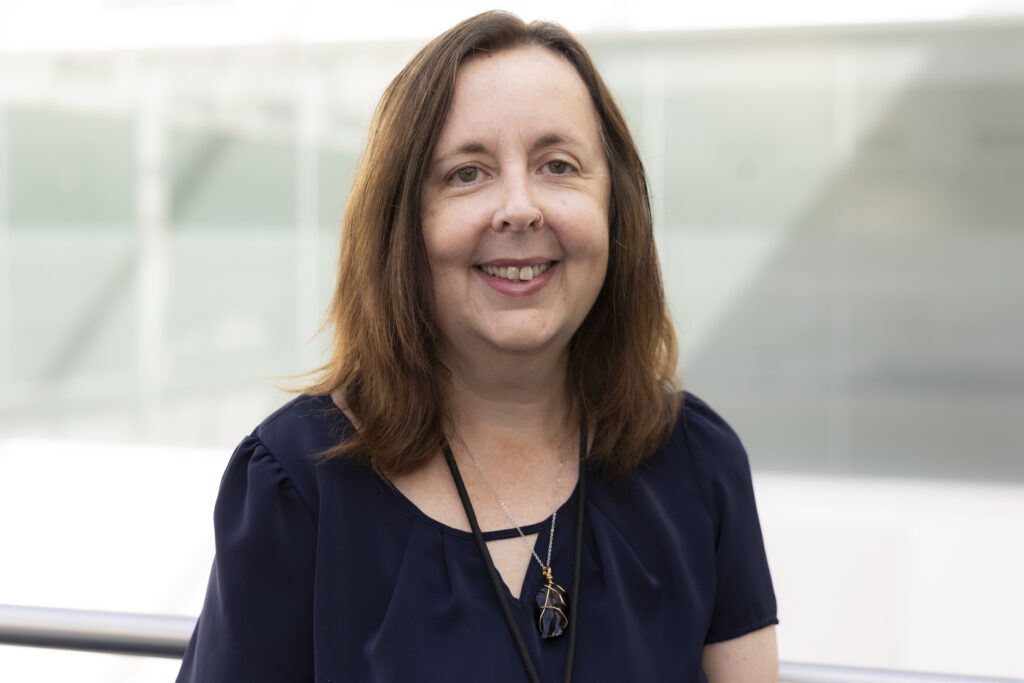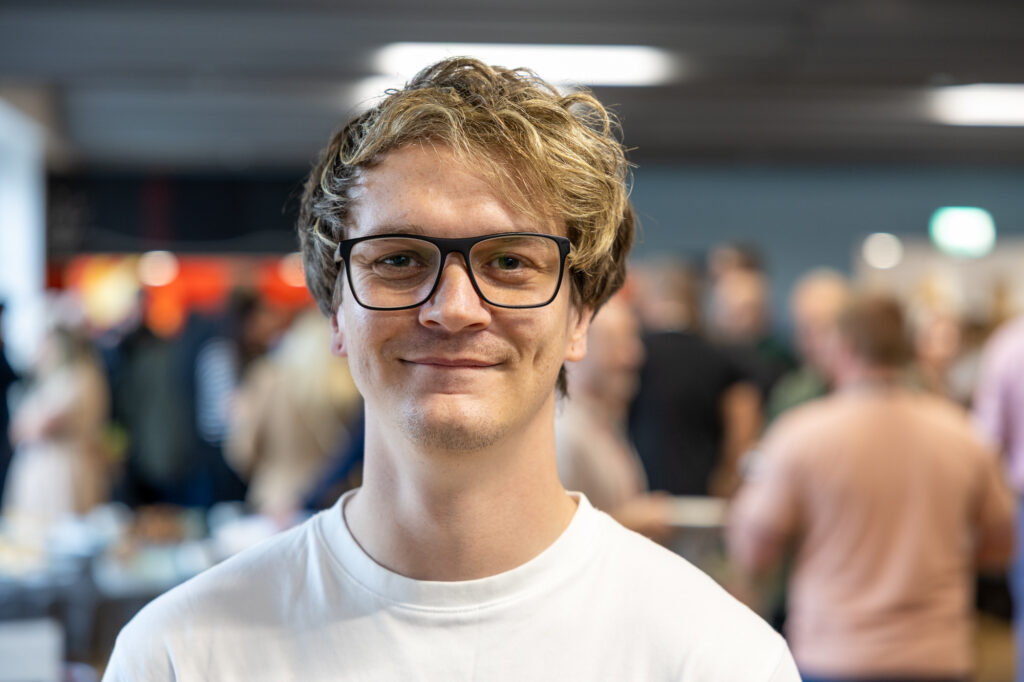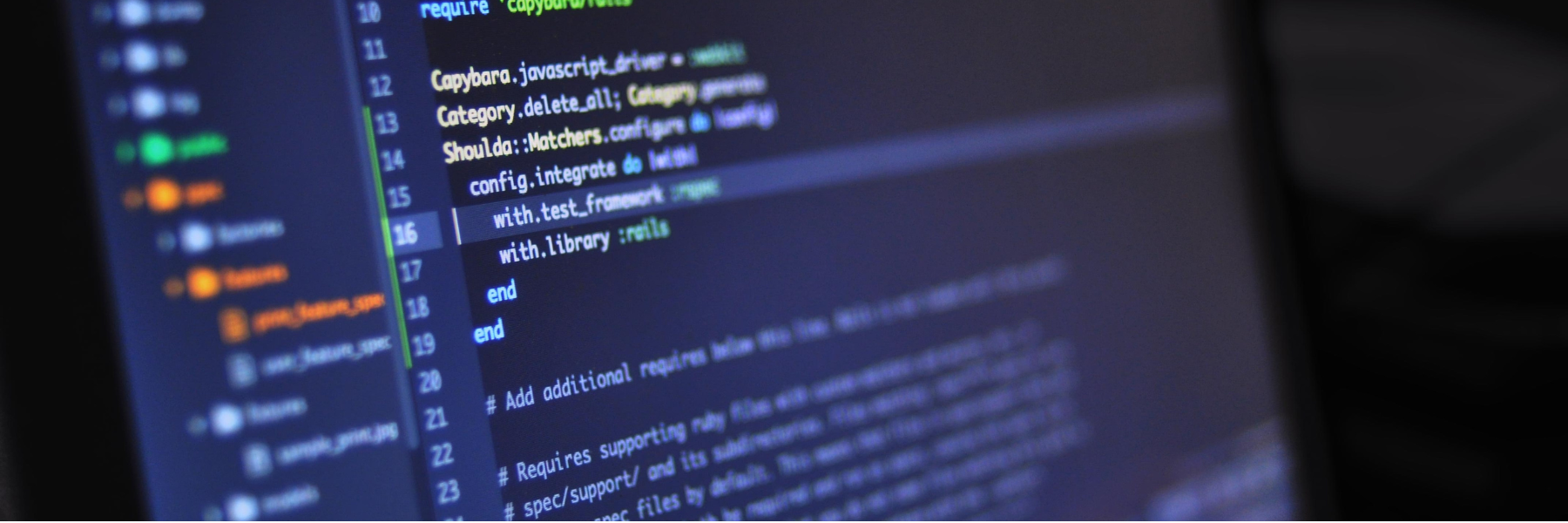This National Coding Week, we’re celebrating the diverse paths into technology by sharing the inspiring stories of two DVLA colleagues. Michelle Slee and Phillip Rees come from completely different backgrounds – one with a PhD in theology, the other a university dropout – yet both found their way into fulfilling tech careers through curiosity, persistence, and a willingness to learn. Their journeys show that coding is accessible to anyone ready to experiment and grow.
Tell us about your current role

Michelle: I’m a Technical Product Manager working in the Drivers Legacy space, where I lead the squads responsible for maintaining the Drivers system and other mainframe applications.
Phillip: I’m a Senior Software Engineer at DVLA where I work on a wide range of customer-facing services.

How did you learn to code?
Michelle: My coding education has been largely self-driven through online courses and experimentation. My interest in coding and technology goes all the way back to the early 80s, when I had a Commodore 16 computer for Christmas. I learned Beginner’s All-purpose Symbolic Instruction Code (BASIC), HyperText Markup Language (HTML), Custom Cascading Style Sheets (CSS) and JavaScript to build websites for fun. I also dabbled in creating games using the development platform Unity. My journey has always been fuelled by a love of gaming and the dream of one day making my own game – an aspiration that still inspires me today.
Phillip: I’m a graphic designer at heart and I’ve always loved typography, design, and creative arts. Through designing, I discovered the Adobe Fireworks tool and found I could export my work into Adobe Dreamweaver and make changes to the code. I taught myself the basics, added code to my MySpace profile and made websites for fun. Early in my career, a developer gave me a book called “CSS: The Missing Manual”. It felt like I had unlocked the future of design, and it was code.
Were there any resources or mentors that helped you along the way?
Michelle: I was introduced to the education platform EdX, which opened my eyes to the world of free online learning, and I started waking up early to study before work. Online learning platforms gave me access to a huge catalogue of courses covering everything from the fundamentals to more advanced topics.
I completed two Python courses, as well as the Data Scientist’s Toolbox from Johns Hopkins University. I also loved the practical focus of Colt Steele and Angela Yu’s Web Developer bootcamp courses on Udemy. I supplemented my learning with books and completed the first year of a BSc Applied Software Engineering course.
All these resources, both formal and informal, provided me with a toolkit to continually explore, experiment and grow.
Phillip: I followed thousands of tech, design, and development accounts on Twitter, and they became a constant voice guiding me toward new developments. The tech community online is built on sharing resources, so I had a constant supply of free tools, articles and guides.
At previous jobs, I tried to learn as much as I could from my leaders. There are incredibly talented people working for small tech companies in Wales, often dealing with challenges that big tech firms struggle to overcome.
Walk us through your career path so far.
Michelle: My career journey has been anything but linear. After completing a Theology degree, MPhil and then a PhD in first-century church history, I became a lecturer at Cardiff University and published a book.
In 2005, I joined DVLA managing an operational team. I progressed and became Head of Drivers Medical, Head of Drivers Policy and then Head of Fraud Policy. In 2017 I transitioned to Information Technology Services (ITS), finally realising my dream of working within a technology-driven environment. Since then, I’ve served as an Agile Delivery Manager (ADM) and now as a Technical Product Manager (TPM).
Phillip: I dropped out of university and lacked formal qualifications but got an entry-level graphic design job. Once I had my foot in the door, I started working on more User Interface (UI) focused tasks. I did some e-learning and then applied for a job as a junior developer.
My employer enrolled me on a course to learn “CoffeeScript”, a simpler version of JavaScript. Eventually, I learned about apps, node, git, how to use a terminal properly, and then there was no stopping me. When you do something every day, it’s surprising how fast it compounds, especially when you have supportive people around you.
In my next role I developed a reputation for solving complex problems, where my design background was a huge influence. From there, I joined DVLA’s Software Engineering profession.
What do you hope to inspire in others through your work?
Michelle: I hope to inspire a sense of possibility – the belief that if you truly want something and are willing to put in the effort, you can achieve far more than you might have imagined. Coding can offer real, practical solutions to everyday problems.
When I was undergoing treatment for breast cancer, I grew frustrated with answering the same questions at every appointment, so I started developing a Chemo Tracker app to record my symptoms and feelings. Even learning how to build the simplest version was empowering; it reminded me that even during challenging times I still had something valuable to contribute.
Phillip: I’ve worked with a huge variety of people, and there are always those who made time to listen, to help me when I was stuck, and who made sure I had what I needed to succeed. Sometimes that was a book, a guide, a whiteboard session or an impromptu workshop where we could dig into something or even just vent.
I want my colleagues to have the same experience, to have peers they can go to with ideas and questions and know they’ll be seriously. There are tons of people I’ve met along the way who started from nowhere, work incredibly hard, and have amazingly innovative ideas. Those are the people we need for the future.
What advice would you give to someone just starting out in coding?
Michelle: Don’t let intimidation or self-doubt stand in your way. Technology is open to anyone curious enough to experiment and resilient enough to learn from mistakes. Start small, make use of free resources, and give yourself permission to play. There’s a special thrill when you run a programme and see it work for the first time. That sense of accomplishment never fades. Remember that coding is deeply creative, a space where logic and imagination meet.
Phillip: One of the biggest hurdles is not knowing what to learn next, so expose yourself to common industry tech with project-based courses. Use roadmap.sh and sites like Udemy to help figure out next steps and look at job postings to see what skills are in demand. The biggest skill to develop is reading – you’ll spend more time reading code than writing it. Try to code something every single day, even if it’s just one function. Nobody remembers everything, so knowing where to find useful information is crucial. Get a nice laptop for writing code on – it won’t make you better at it, but you’ll want to do it more!
Michelle and Phillip’s stories demonstrate that there’s no single route into coding. What matters most is curiosity, resilience, and the willingness to take that first step. The resources are out there, the community is welcoming, and your unique background might be exactly what the tech world needs.
If a digital career interests you, why not join us at DVLA? Check Civil Service Jobs for all the latest career opportunities. You can also learn more about digital careers at DVLA.




